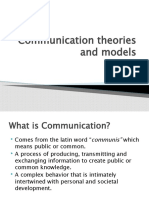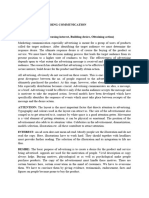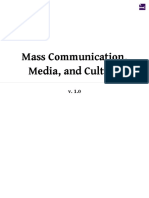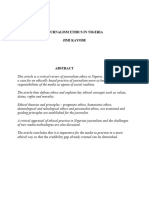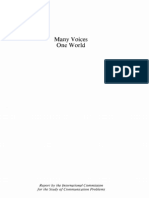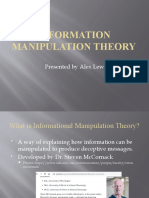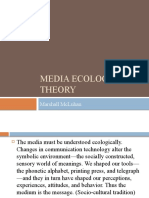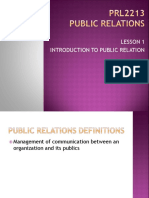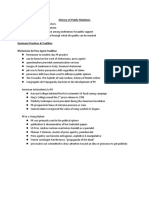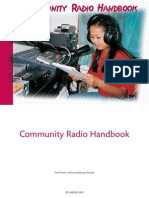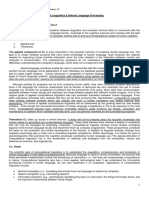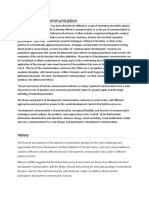100% found this document useful (2 votes)
1K views2 pagesDevelopment Media Theory
Development Media Theory encompasses communication strategies aimed at improving the quality of life in underdeveloped and marginalized communities. It includes various approaches such as information dissemination, behavior change, and media advocacy, while facing challenges like lack of infrastructure and dependence on developed nations. The effectiveness of these strategies is influenced by government policies regarding media freedom and control.
Uploaded by
dsg8246Copyright
© © All Rights Reserved
We take content rights seriously. If you suspect this is your content, claim it here.
Available Formats
Download as DOCX, PDF, TXT or read online on Scribd
100% found this document useful (2 votes)
1K views2 pagesDevelopment Media Theory
Development Media Theory encompasses communication strategies aimed at improving the quality of life in underdeveloped and marginalized communities. It includes various approaches such as information dissemination, behavior change, and media advocacy, while facing challenges like lack of infrastructure and dependence on developed nations. The effectiveness of these strategies is influenced by government policies regarding media freedom and control.
Uploaded by
dsg8246Copyright
© © All Rights Reserved
We take content rights seriously. If you suspect this is your content, claim it here.
Available Formats
Download as DOCX, PDF, TXT or read online on Scribd
/ 2








